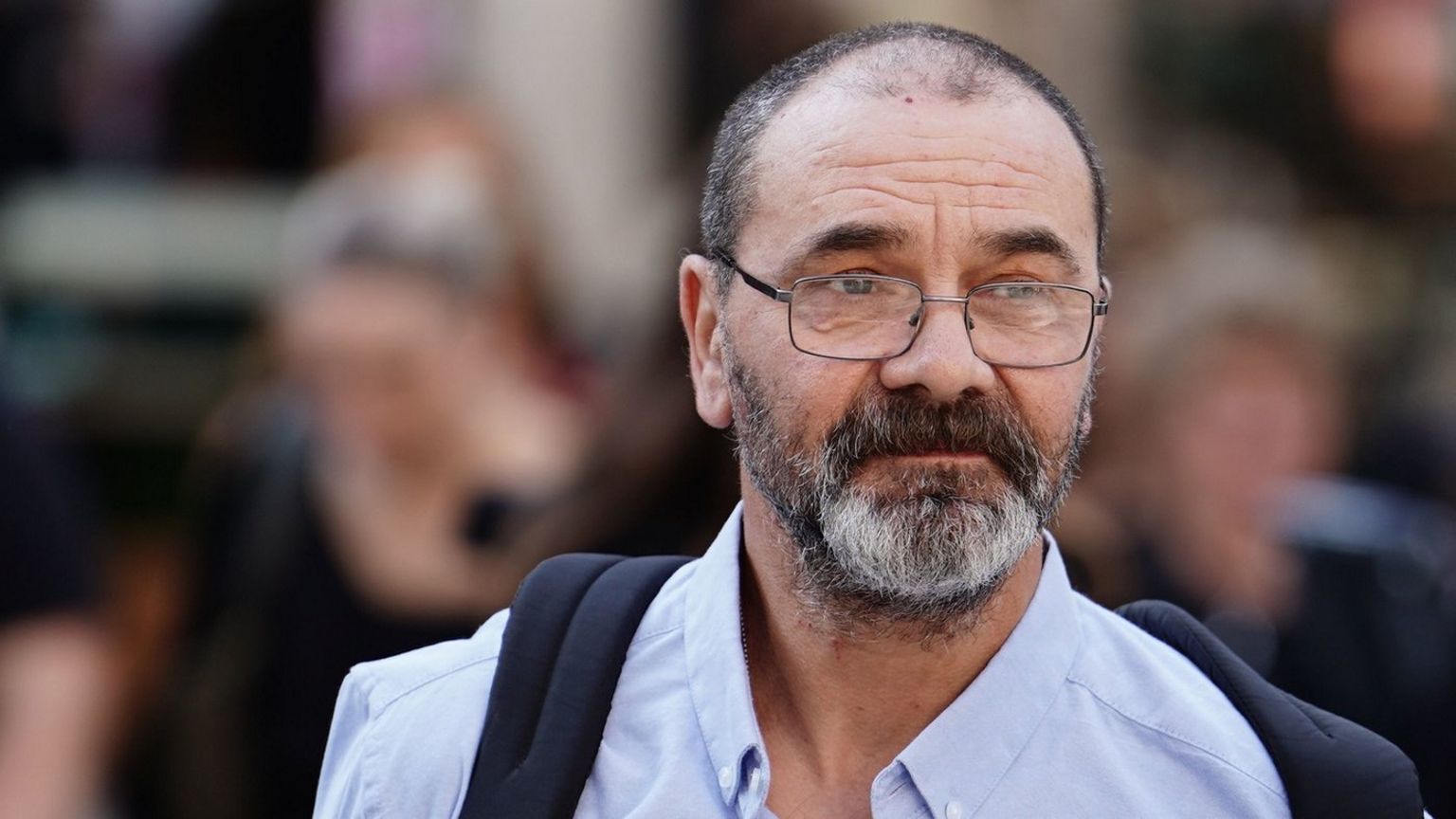
Andrew Malkinson spent 17 years in prison for a crime he did not commit
Police kept evidence from jurors in a case which led to an innocent man spending 17 years in prison for a rape he did not commit, judges have ruled.
Andrew Malkinson was cleared last month after new DNA evidence linking another suspect to the crime emerged.
Court of Appeal judges have now also called the original conviction “unsafe” because Greater Manchester Police did not disclose images during his trial.
Mr Malkinson had always maintained his innocence and was released in 2020.
He was jailed in 2004 for an attack on a woman in Salford and the prosecution case against him was based only on identification evidence.
Greater Manchester Police (GMP) said the force was “truly sorry for this most appalling miscarriage of justice”.
Following the Court of Appeal ruling, Mr Malkinson said he felt “vindicated by the court’s finding that [GMP] unlawfully withheld evidence” and “caused his wrongful conviction nightmare”.
He told the BBC the impact of what he described as “mass failings” by the force had “been catastrophic on me”.
“They had control of the evidence, they chose not to disclose these vital pieces of evidence.
“I can’t even elaborate [on] what it’s like to be in prison at all for something you’ve not done, let alone aeons of time.”
In July, Mr Malkinson’s convictions for two counts of rape and one of choking or strangling with intent to commit rape were overturned by Lord Justice Holroyde.
The judge, sitting with Mr Justice Goose and Sir Robin Spencer, said last month that Mr Malkinson’s legal team had “raised a number of substantial and important points” in other parts of his appeal that would be decided in writing.
In a ruling earlier, the three judges said Mr Malkinson’s conviction was also unsafe because of failures to disclose evidence.
The police evidence included photographs of the victim’s hands which showed the fingernail of the rape victim’s left middle finger was noticeably shorter than her other fingernails, which corroborated her evidence that she scratched her attacker’s face.
‘Casting doubt’
In his judgement, Lord Justice Holroyde said the failure to disclose the photographs had “prevented the appellant from putting his case forward in its best light and strengthened the prosecution case against him”.
Mr Malkinson’s defence team was therefore unable to highlight to the jury that he had no such scratch injury to his face.
Lord Justice Holroyde said: “If the photographs had been disclosed, the jury’s verdicts may have been different”.
Watch: Andrew Malkinson speaks to the BBC’s Joe Inwood
In his judgement, it was also noted that two eyewitnesses who identified Mr Malkinson had convictions for dishonesty offences.
Lord Justice Holroyde said if the previous convictions had been disclosed during the trial it “would have been capable of casting doubt on their general honesty and capable of affecting the jury’s view as to whether they were civic-minded persons doing their best to assist.”
He added: “In our judgement, the challenge to the character and credibility of those two identifying witnesses would have been capable of affecting the jury’s overall view as to whether they could be sure that the appellant was correctly identified.”
Mr Malkinson said: “The evidence needed to overturn my conviction has been sitting in police files for the past two decades.
“Yet the [Criminal Cases Review Commission] did not bother to look and it fell to the small charity Appeal to bring it to light.”
He said that cost him “extra years behind bars for a crime I did not commit”.
He told the BBC it had caused him “oceans of suffering”.
GMP’s Assistant Chief Constable Sarah Jackson said the force accepted the Court of Appeal’s judgement and added: “I speak on behalf of the whole force when I say that we are truly sorry for this most appalling miscarriage of justice.
She said she had “extended an invitation to meet with Mr Malkinson and say sorry to him personally for the time he wrongly spent in prison and for all that he endured as a consequence”.
Ms Jackson said she could not comment further because the force was being investigated by the police watchdog, the Independent Office for Police Conduct, in relation to the case and due to a live criminal investigation.
Why not follow BBC North West on Facebook, Twitter and Instagram? You can also send story ideas to northwest.newsonline@bbc.co.uk








